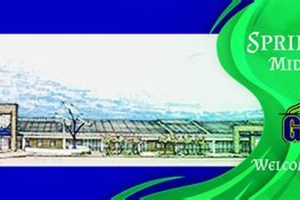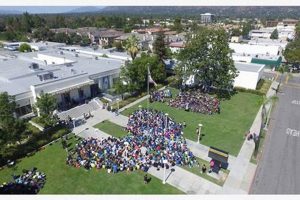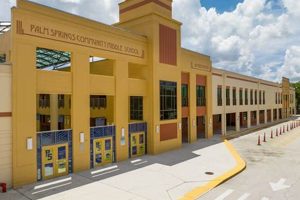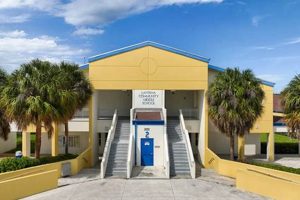Suitable subjects for student inquiry at the middle school level typically encompass a range of disciplines, from the sciences and social studies to language arts and even the arts themselves. Examples include exploring the impact of social media on teenagers, the history of a specific local landmark, the life cycle of a butterfly, or comparing and contrasting different artistic styles. These investigations can take various forms, including literature reviews, scientific experiments, surveys, and interviews.
Developing investigative skills at this educational stage provides numerous benefits. It fosters critical thinking, problem-solving abilities, and information literacy. Students learn to formulate research questions, gather and analyze evidence, and communicate their findings effectively. Historically, the emphasis on student-led research has grown alongside the recognition of the importance of active learning and the development of 21st-century skills. This pedagogical approach empowers students to take ownership of their learning and become active knowledge creators.
The following sections will delve into specific subject areas suitable for middle school exploration, offering examples and resources to support both educators and students in navigating the research process. Topics will be categorized for ease of access and will provide practical guidance for conducting successful investigations.
Tips for Selecting and Developing Middle School Research Projects
Choosing and executing a successful research project requires careful planning and consideration. The following tips offer guidance for navigating the process effectively.
Tip 1: Start with Student Interest: Projects aligned with individual interests are more engaging and motivate deeper exploration. Exploring hobbies, passions, or current events can spark compelling research questions.
Tip 2: Narrow the Focus: Broad topics can become overwhelming. Encourage students to refine their initial ideas into manageable research questions. For example, instead of “climate change,” a student might focus on “the impact of climate change on local bird populations.”
Tip 3: Ensure Accessibility of Resources: Consider the availability of age-appropriate and reliable information sources. Guide students towards reputable websites, library databases, and expert interviews.
Tip 4: Develop a Realistic Timeline: Research takes time. Breaking down the project into smaller, manageable tasks with clear deadlines promotes effective time management and prevents last-minute rushes.
Tip 5: Emphasize Ethical Research Practices: Teach students about plagiarism and the importance of properly citing sources. Provide clear guidelines for acknowledging and crediting the work of others.
Tip 6: Encourage Diverse Research Methods: Exploring various research methods, such as surveys, interviews, experiments, and literature reviews, enriches the learning experience and develops a wider range of investigative skills.
Tip 7: Provide Opportunities for Feedback and Revision: Regular check-ins and opportunities for feedback allow students to refine their work and address any challenges they encounter throughout the research process.
By following these guidelines, educators can empower students to conduct meaningful research, fostering critical thinking, information literacy, and a lifelong love of learning. These skills provide a solid foundation for future academic success and informed civic engagement.
The concluding section will offer additional resources and support materials for educators and students embarking on middle school research projects.
1. Age-Appropriate Complexity
Research topic complexity must align with middle school students’ developmental stage. Cognitive abilities, prior knowledge, and research skill levels influence suitable topic selection. Balancing challenge with attainable goals fosters engagement and successful project completion. This section explores key facets of age-appropriate complexity within middle school research.
- Cognitive Development
Middle school students transition from concrete to abstract thinking. Topics requiring complex analysis or nuanced interpretation may prove challenging. For example, exploring the philosophical implications of artificial intelligence might exceed typical cognitive capacity at this age. Instead, focusing on the practical applications of AI in daily life offers a more accessible entry point. Choosing topics that align with developmental milestones ensures comprehension and facilitates meaningful exploration.
- Prior Knowledge
Building upon existing knowledge scaffolds new learning. Topics connected to familiar concepts or curriculum content provide a foundation for deeper investigation. For instance, a student familiar with basic biology can delve into specific ecological relationships within their local environment. Leveraging prior knowledge allows students to connect new information to existing frameworks, enhancing comprehension and critical analysis.
- Research Skills
Middle school represents a formative period for research skill development. Topics requiring advanced research methodologies or extensive data analysis may overwhelm students. Instead, focusing on projects utilizing accessible research methods, such as conducting interviews or analyzing readily available data sets, allows skill development without undue complexity. Gradually increasing research demands as skills progress ensures a supportive learning curve.
- Scope and Depth
Project scope and depth must be manageable within the timeframe and resources available. Overly broad or complex topics can lead to superficial exploration and hinder meaningful engagement. Narrowing the focus to specific aspects of a broader theme allows for in-depth investigation and manageable project completion. For example, instead of researching “World War II,” a student might focus on “The Role of Women in the American War Effort,” providing a more manageable scope.
Considering these facets of age-appropriate complexity ensures research projects effectively challenge middle school students while remaining within their capabilities. This approach fosters genuine inquiry, promotes skill development, and cultivates a lifelong appreciation for research and knowledge creation.
2. Engaging Subject Matter
Engaging subject matter forms the cornerstone of successful research projects at the middle school level. Intrinsic motivation, fueled by genuine interest in the topic, drives deeper exploration and more meaningful learning outcomes. When students connect with their research on a personal level, they are more likely to invest time and effort, leading to higher-quality work and a greater appreciation for the research process. Conversely, topics perceived as dry or irrelevant can stifle enthusiasm and hinder the development of critical research skills. Selecting topics that resonate with students’ interests and experiences significantly impacts project success.
Several factors contribute to topic engagement. Relevance to students’ lives plays a crucial role. Research questions related to current events, social issues, or personal hobbies inherently capture attention and encourage active participation. For example, a student passionate about animals might investigate the ethical implications of animal testing in cosmetics, while another interested in technology could explore the impact of social media on adolescent mental health. Further, offering choices empowers students to take ownership of their learning. Providing a range of research topics within a broader theme allows students to select areas that genuinely pique their curiosity. This autonomy fosters intrinsic motivation and increases investment in the research process. Finally, incorporating hands-on activities, such as conducting experiments, building models, or creating multimedia presentations, transforms research from a passive exercise into an active and engaging experience.
Cultivating student engagement through careful topic selection yields significant benefits. It fosters a deeper understanding of the research process, enhances critical thinking skills, and promotes intellectual curiosity. Furthermore, engaging research experiences can spark lifelong interests and inspire future academic pursuits. While challenges such as resource availability and time constraints can influence topic selection, prioritizing student engagement remains paramount in maximizing the educational value of middle school research projects. This approach nurtures a positive association with learning and empowers students to become active and informed knowledge creators.
3. Available Resources
Resource availability significantly influences the feasibility and depth of middle school research projects. Access to appropriate materials shapes topic selection, research methodologies, and ultimately, the project’s outcome. Adequate resources empower students to explore their chosen topics thoroughly, develop robust research skills, and produce high-quality work. This section examines key facets of resource availability in the context of middle school research.
- Library Resources
School and public libraries provide foundational resources for middle school research. Access to age-appropriate books, periodicals, and databases offers a wealth of information across various disciplines. Librarians provide expert guidance in navigating these resources, assisting students in locating relevant materials and developing effective search strategies. For example, a student researching the history of local agriculture could utilize library archives to access historical documents and photographs. Strong library resources are essential for supporting diverse research interests and fostering information literacy skills.
- Online Databases and Digital Archives
The internet offers vast digital resources, including online databases, digital archives, and reputable websites. These platforms provide access to scholarly articles, primary source documents, statistical data, and multimedia content. However, navigating the online landscape requires critical evaluation of information sources. Educators play a vital role in guiding students towards credible websites and teaching them to differentiate between reliable and unreliable information. For instance, students researching the impact of plastic pollution can access scientific studies and data visualizations through online databases.
- Expert Interviews and Community Resources
Connecting with experts and leveraging community resources enriches research projects by providing real-world insights and perspectives. Interviews with local professionals, community leaders, or subject matter experts offer valuable firsthand information. Furthermore, museums, historical societies, and local organizations can provide access to specialized collections, exhibits, and educational programs. For example, a student researching local architecture could interview an architect or visit a historical preservation society. These interactions enhance learning and connect classroom research to the broader community.
- Technology and Multimedia Tools
Technology plays a crucial role in facilitating research and enabling diverse forms of data collection and presentation. Computers, software programs, and multimedia tools support literature reviews, data analysis, and the creation of presentations, videos, and websites. Access to these tools enhances research efficiency and allows students to communicate their findings in engaging and impactful ways. For example, students can use spreadsheet software to analyze survey data or create interactive presentations using presentation software.
The availability and effective utilization of these resources significantly impact the quality and depth of middle school research projects. By ensuring access to a diverse range of materials and providing guidance in their appropriate use, educators empower students to conduct meaningful research, develop critical information literacy skills, and achieve impactful learning outcomes. This fosters a lifelong appreciation for research and equips students with the skills necessary for future academic success and informed civic engagement.
4. Manageable Scope
Manageable scope is a critical aspect of successful research projects at the middle school level. Project scope directly impacts feasibility, depth of exploration, and ultimately, the learning outcomes achieved. An overly broad scope can lead to superficial research, overwhelmed students, and incomplete projects. Conversely, a narrowly defined scope allows for focused investigation, in-depth analysis, and the development of robust research skills. The connection between manageable scope and effective middle school research lies in aligning the project’s breadth and depth with students’ developmental stage, available resources, and allotted time.
Consider a hypothetical research topic: “The Impact of Technology on Society.” This topic is far too broad for a middle school research project. It encompasses vast areas of inquiry, from the history of technological innovation to the ethical implications of artificial intelligence. A student attempting to tackle such a broad topic would likely become overwhelmed and produce superficial work. However, by narrowing the scope, the topic becomes manageable. For instance, a student could focus on “The Impact of Social Media on Teen Communication” or “The Effectiveness of Educational Apps in Enhancing Math Skills.” These refined topics allow for focused research, deeper analysis, and more meaningful conclusions.
Choosing a manageable scope enables students to develop essential research skills. They learn to formulate specific research questions, identify relevant resources, gather and analyze data effectively, and draw informed conclusions. Furthermore, a manageable scope facilitates time management and prevents projects from becoming overwhelming. By focusing on a specific aspect of a broader topic, students can allocate their time and resources efficiently, leading to higher quality work and a greater sense of accomplishment. Understanding the importance of manageable scope empowers middle school students to conduct meaningful research, develop valuable skills, and cultivate a lifelong appreciation for inquiry and knowledge creation.
5. Alignment with Curriculum
Alignment between research topics and existing middle school curricula strengthens learning outcomes and provides valuable context for student investigations. Connecting research projects to current classroom studies reinforces concepts, deepens understanding, and demonstrates the practical application of academic knowledge. This integration creates a synergistic effect, enriching both the research experience and the overall curriculum. For example, students studying ancient civilizations could research the daily life of children in ancient Rome, connecting their research directly to historical content. Similarly, during a unit on ecosystems, students might research the impact of invasive species on a local habitat, applying scientific concepts learned in class to a real-world issue.
Curriculum alignment facilitates the efficient use of instructional time and resources. Research projects can complement existing lesson plans, providing opportunities for hands-on learning and extending classroom discussions. Teachers can leverage research findings to illustrate key concepts, spark classroom debates, and create authentic learning experiences. Furthermore, aligning research topics with curriculum standards ensures that projects address specific learning objectives and contribute directly to academic progress. This integrated approach maximizes the educational value of research projects and enhances the overall coherence of the middle school learning experience. For example, a research project on the chemical properties of different substances could align with a chemistry unit, allowing students to apply their knowledge and deepen their understanding of chemical reactions.
Effective integration of research into the curriculum requires careful planning and collaboration. Educators must identify relevant connections between research topics and curriculum standards, select appropriate research methodologies, and provide necessary resources and support. Successful integration fosters a richer, more engaging learning environment, where research becomes an integral part of the educational journey, rather than a standalone activity. This approach empowers students to connect classroom learning to real-world applications, fostering critical thinking, problem-solving skills, and a deeper appreciation for the interconnectedness of knowledge.
6. Promotes Critical Thinking
Effective research topics at the middle school level serve as catalysts for developing critical thinking skills. These skills, crucial for navigating complex information and forming reasoned judgments, are cultivated through the process of inquiry, analysis, and evaluation inherent in research. Well-chosen research topics provide a framework for students to engage in higher-order thinking, moving beyond rote memorization towards analytical reasoning and problem-solving. This section explores the multifaceted connection between critical thinking and research topics for middle school students.
- Analysis and Evaluation of Information
Research necessitates the analysis and evaluation of information gathered from various sources. Students must discern credible sources from less reliable ones, identify biases, and evaluate the validity of evidence. For example, when researching the environmental impact of plastic bags, students must differentiate between factual scientific data and opinion-based articles. This process hones critical thinking skills by requiring students to assess information critically and form reasoned judgments based on evidence.
- Formulation of Research Questions and Hypotheses
Developing focused research questions and testable hypotheses requires critical thinking. Students must analyze existing knowledge, identify gaps in understanding, and formulate inquiries that address specific aspects of a topic. For example, instead of broadly asking “What is climate change?”, a student might ask “How does climate change affect local bird migration patterns?” This process encourages analytical thinking and fosters the ability to frame complex issues into manageable research questions.
- Interpretation of Data and Drawing Conclusions
Research involves interpreting data and drawing logical conclusions based on evidence. Students must analyze data collected through various methods, such as surveys, experiments, or literature reviews, and synthesize this information to form meaningful conclusions. For instance, a student researching the effectiveness of different study methods might analyze test scores and survey responses to determine which methods yield the best results. This process strengthens critical thinking skills by requiring students to interpret data objectively and draw reasoned conclusions supported by evidence.
- Problem-Solving and Solution Development
Many research projects involve identifying problems and exploring potential solutions. Students must analyze the root causes of problems, evaluate different approaches, and propose solutions based on their research findings. For example, a student researching local water pollution might identify sources of contamination and propose solutions for reducing pollution levels. This process encourages critical thinking by challenging students to analyze complex problems, evaluate potential solutions, and develop reasoned recommendations.
By engaging with appropriately challenging research topics, middle school students cultivate essential critical thinking skills. These skills extend beyond the research project itself, equipping students with the analytical and problem-solving abilities necessary for academic success, informed decision-making, and effective civic engagement. Research becomes a powerful tool for fostering intellectual growth and empowering students to become critical thinkers and lifelong learners.
7. Encourages Skill Development
Well-chosen research topics in middle school are instrumental in fostering a range of essential skills. These skills extend beyond the immediate research project, equipping students with valuable tools for academic success, future career paths, and informed civic engagement. The research process itself provides a practical framework for skill development, offering opportunities to apply knowledge, learn new techniques, and refine existing abilities. From information literacy and critical thinking to communication and collaboration, research topics serve as catalysts for holistic skill development in middle school students.
- Information Literacy
Navigating the complex information landscape requires strong information literacy skills. Research projects provide opportunities for students to develop these skills by locating, evaluating, and synthesizing information from diverse sources. For instance, a student researching the history of their town might utilize local archives, online databases, and interviews with community members. This process strengthens their ability to identify credible sources, evaluate information critically, and synthesize diverse perspectives into a cohesive understanding.
- Critical Thinking and Analysis
Research inherently involves critical thinking. Students must analyze research questions, evaluate evidence, and draw reasoned conclusions based on their findings. A student researching the effectiveness of different recycling programs, for example, would need to analyze data on recycling rates, environmental impact, and program costs to draw informed conclusions. This process strengthens their analytical skills and cultivates the ability to evaluate information objectively and form reasoned judgments.
- Communication and Presentation Skills
Communicating research findings effectively is a crucial skill. Research projects often culminate in presentations, reports, or multimedia projects, providing opportunities for students to hone their communication skills. A student presenting their research on the benefits of community gardens, for instance, would practice organizing information logically, presenting data visually, and articulating their findings clearly and persuasively. This strengthens their ability to communicate complex information effectively to different audiences.
- Time Management and Organizational Skills
Research projects often involve multiple stages, from background research and data collection to analysis and presentation. Managing these stages effectively requires strong organizational and time management skills. A student conducting a science experiment, for example, would need to plan the experiment, gather materials, collect data, and analyze results within a given timeframe. This process strengthens their ability to plan, organize, and manage their time effectively to achieve specific goals.
By engaging in thoughtfully designed research projects, middle school students develop a valuable skill set that extends far beyond the classroom. These skills, honed through the research process, empower students to become effective learners, critical thinkers, and informed citizens. Research topics, therefore, become instrumental not only in acquiring knowledge but also in cultivating essential skills for lifelong learning and success.
Frequently Asked Questions about Research Projects in Middle School
This section addresses common inquiries regarding suitable research projects for middle school students, aiming to provide clarity and guidance for educators and students alike.
Question 1: How complex should a research project be for a middle school student?
Project complexity should align with developmental stages, prior knowledge, and available resources. Focus on manageable scope and depth to avoid overwhelming students while still providing intellectual stimulation. Prioritize skill development alongside content exploration.
Question 2: How can educators help students choose engaging research topics?
Encourage exploration of personal interests, hobbies, and current events. Offer choices within broader themes to foster ownership and motivation. Connect topics to existing curriculum to provide context and relevance.
Question 3: What resources are essential for successful middle school research projects?
Access to school and public libraries, online databases, and credible websites is crucial. Encourage utilization of community resources, expert interviews, and age-appropriate technology tools. Provide guidance on evaluating information sources critically.
Question 4: How can educators ensure research projects align with curriculum objectives?
Select topics that reinforce and extend existing curriculum content. Integrate research projects into lesson plans to enhance learning outcomes. Align research activities with specific learning standards to ensure relevance and coherence.
Question 5: How do research projects promote critical thinking skills in middle school students?
Research requires analysis, evaluation, and synthesis of information, fostering critical thinking. Encourage students to formulate research questions, evaluate evidence, and draw reasoned conclusions based on their findings.
Question 6: Beyond academic knowledge, what other skills do research projects develop?
Research cultivates information literacy, communication, time management, and organizational skills. The research process also fosters collaboration, problem-solving, and digital literacy, equipping students with essential skills for future success.
Successful middle school research experiences require careful consideration of topic selection, resource availability, and alignment with curriculum objectives. Prioritizing these aspects empowers students to develop essential skills while deepening their understanding of the world around them.
The following section will explore specific research topics suitable for middle school investigation across various disciplines.
Conclusion
Suitable research topics for middle school students must balance intellectual stimulation with manageable scope and available resources. This exploration has highlighted the importance of aligning research projects with curriculum objectives, fostering critical thinking skills, and promoting holistic skill development. Effective topic selection hinges on considering age-appropriate complexity, engaging subject matter, resource accessibility, and alignment with curriculum standards. Furthermore, fostering critical thinking and encouraging diverse skill development through research are essential for preparing students for future academic and professional success.
The ability to conduct effective research is a crucial skill in the 21st century. By equipping middle school students with the tools and knowledge necessary for successful research, educators empower them to become informed decision-makers, critical thinkers, and lifelong learners. Cultivating a research-oriented mindset at this stage lays a solid foundation for future academic pursuits and fosters a deeper understanding of the world around them. The emphasis placed on developing robust research skills in middle school ultimately contributes to a more informed and engaged citizenry prepared to tackle the complex challenges of the future.







